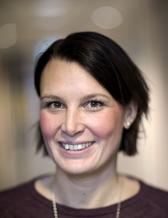59 million in funding to boost knowledge of cardiovascular disease
Of the SEK 59 million in grants for research at Sahlgrenska Academy from the Swedish Heart Lung Foundation, the majority (SEK 53 million) goes to projects at the Institute of Medicine. The funds will provide new insights into how vesicles contribute to inflammation in the airways during asthma, how to use artificial intelligence (AI) to evaluate sleep, and how to reduce complications after cardiac surgery.
Recipients at the Institute of medicines who receive funding from the Swedish Heart Lung Foundation’s major round of applications 2022
Lennart Bergfeldt
Prevention av plötslig hjärtdöd: studier av elektrofysiologiska mekanismer på hög-risk individer och friska personer
800 000 kronor
Göran Bergström
Towards personalized risk prediction of cardiovascular disease
2 700 000 kronor
Jan Borén
Triglyceride-rich Lipoproteins and Cardiovascular Disease
5 400 000 kronor
Fredrik Bäckhed
Gut microbiota and cardiovascular disease: from patient to metabolite
5100 000 kronor
Mats Börjesson
Individualized physical activity recommendations for cardiovascular health: a SCAPIS program in precision health
1 500 000 kronor
Lena Carlsson
The role of genetic susceptibility and somatic mutation-driven clonal hematopoiesis in the development of cardiovascular disease in patients with obesity treated by bariatric surgery or usual care
1 500 000 kronor
Mikael Dellborg
Psykisk ohälsa hos personer med medfött hjärtfel
500 000 kronor
Göran Dellgren
Mekanisk perfusion med kort- och långtidspumpar vid terminal hjärtsvikt.
3 400 000 kronor
Mikael Fu
Optimizing Aldosterone Receptor Antagonist Therapy by Sodium Zirconium Cyclosilicate in Heart Failure (OPRA-HF)
1 000 000 kronor
Ludger Grote
“Sleep Revolution”: Improved cardiopulmonary phenotyping during sleep in respiratory disease
2 100 000 kronor
Ludger Grote
”Sömnapné och högt blodtryck – epidemiologiska, diagnostiska och behandlingsmässiga aspekter”
880 000 kronor
Jan Hedner
Utveckling av den första läkemedelsterapin vid sömnapné. Explorering av fundamentala mekanismer relaterade till inhibition av karbanhydras.
3 000 000 kronor
Anders Jeppsson
Prevention och behandling av komplikationer efter hjärtkirurgi
4 500 000 kronor
Hannu Kankaanranta
COVID-19 i Västsverige: långtidsuppföljning av hjärt- och lunghälsa med kliniska undersökningar och via register
400 000 kronor
Hannu Kankaanranta
Att leta efter det som inte syns: Precisionsmedicin för att identifiera karaktäristika och behandling för T2-låg astma hos vuxna
1 800 000 kronor
Marcus Lind
Hjärtinfarkt, hjärtsvikt, förmaksflimmer och stroke över tid i befolkningen och i riskgrupper; en analys med ett internationellt perspektiv.
1 800 000 kronor
Cecilia Lässer
Extracellulära vesiklars roll i luftvägarna vid olika astmafenotyper
1 200 000 kronor
Jan Lötvall
Extracellular Vesicles to Prevent or Treat Severe Respiratory Inflammatory Disease
1 500 000 kronor
Fredrik Nyberg
Risk, insjuknande och komplikationer av COVID-19 hos hjärt-kärl- och lungsjuka –longitudinell nationell registerstudie med regelbunden datauppdatering
400 000 kronor
Fredrik Nyberg
Risk, insjuknande och komplikationer av COVID-19 hos hjärt-kärl- och lungsjuka –longitudinell nationell registerstudie med regelbunden datauppdatering
1 500 000
Anna-Carin Olin
Exposure to airway irritants and the risk of permanent of respiratory impairment after Covid-19
400 000 kronor
Anna-Carin Olin
Exponering, Covid-19 och påverkan på små luftvägar
2 400 000 kronor
Björn Redfors
Re-defining care in acute ischemic heart failure – focus on myocardial stunning
1 600 000 kronor
Annika Rosengren
Obesity over the life course and cardiometabolic disease – a perfect storm in the post-COVID-19 pandemic setting
4 350 000 kronor
Maria Rosvall
Is an optimistic mind associated with healthy arteries and better lung function?
400 000 kronor
Åsa Tivesten
Fysiologiska och patofysiologiska effekter av androgener inom hjärt-kärlsystemet
3 300 000 kronor
Maria Åberg
COVID-19 och sena komplikationer i hjärta-kärl och lungor i relation till tidigare kardiovaskulära riskfaktorer och socioekonomi
500 000 kronor



